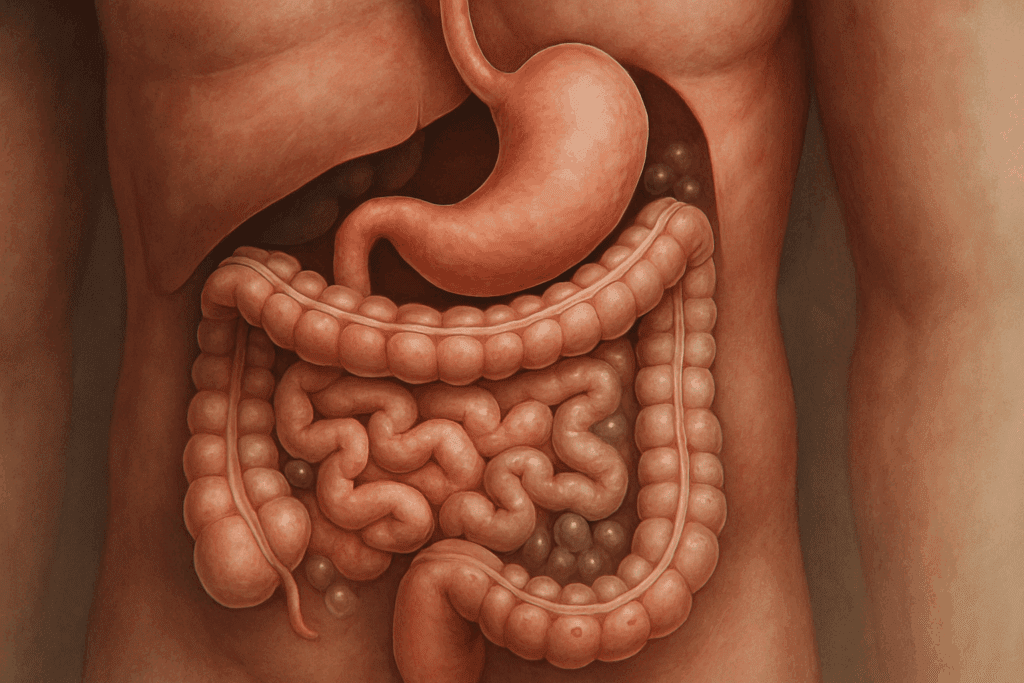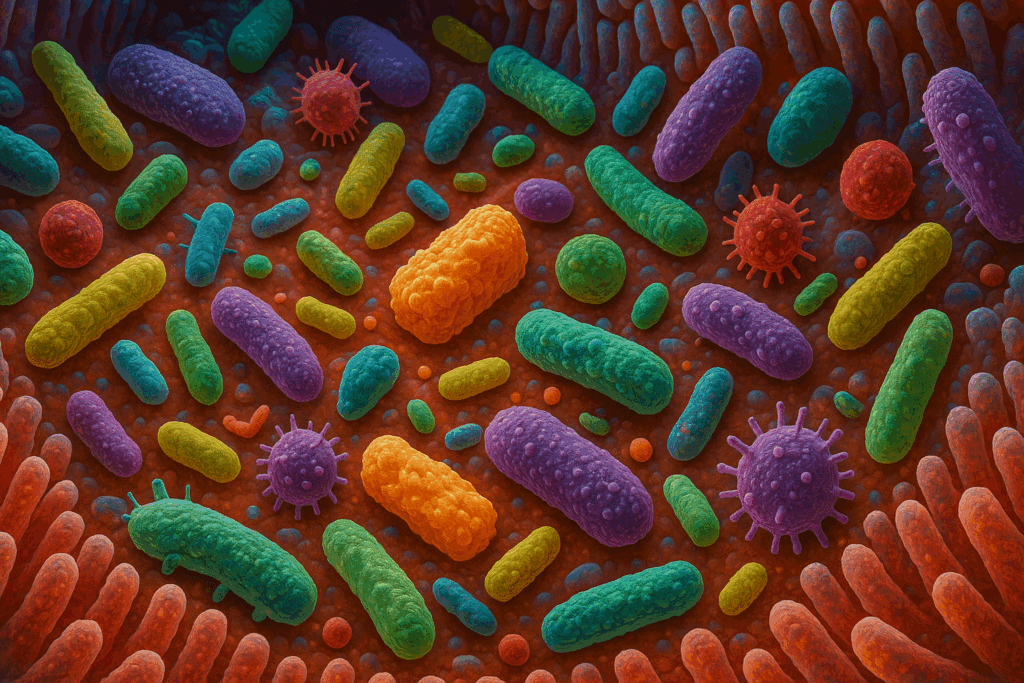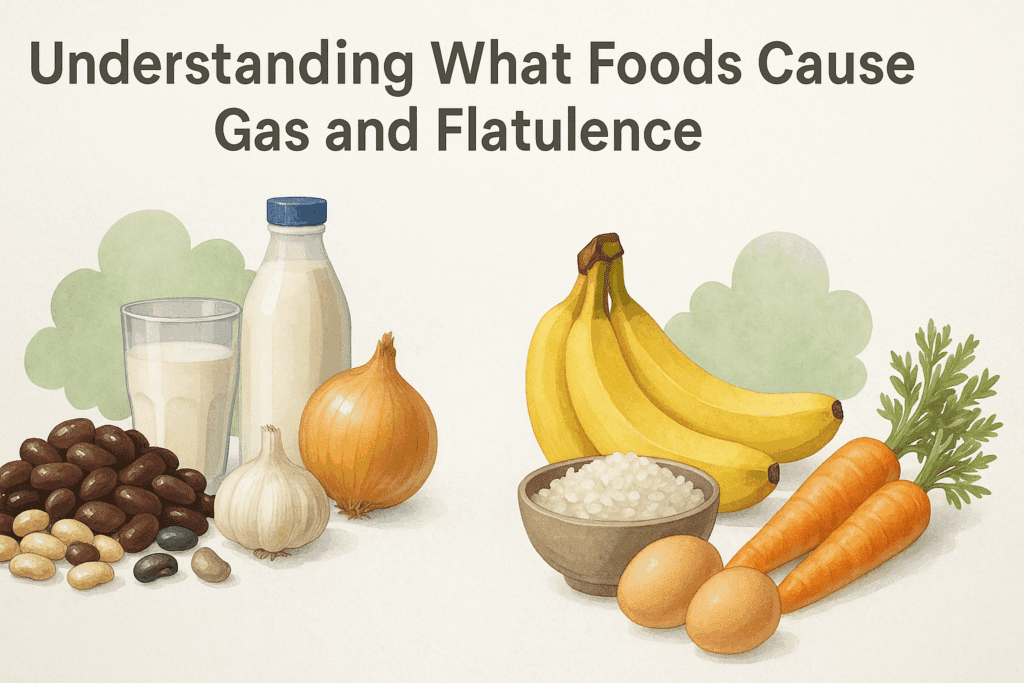Passing gas is a normal part of digestive health, but when the frequency or volume becomes noticeable, disruptive, or embarrassing, many people start to wonder: why am I so gassy all the time? This seemingly simple question often masks a more complex interplay of diet, gut microbiome composition, digestive enzyme activity, underlying health conditions, and lifestyle habits. While flatulence is a natural byproduct of digestion, excessive flatulence may point to dietary imbalances, gut dysfunction, or even early signs of digestive disorders. Understanding the many facets of flatulence not only helps reduce discomfort but can also uncover important health insights that should not be ignored.
You may also like: How Long Does GERD Last in Adults? Expert Insights on This Common Yet Persistent Digestive Condition

What Is Flatulence and Why Does It Happen?
Flatulence, more commonly known as farting, refers to the release of intestinal gas through the rectum. The gas itself is composed of various substances including nitrogen, oxygen, carbon dioxide, hydrogen, and methane. This mixture is produced as a byproduct of normal digestion, especially when undigested food is broken down by bacteria in the colon. But not all flatulence is created equal. Some people experience greater volume or frequency due to dietary choices, bacterial imbalances, or gastrointestinal sensitivity. The answer to what is flatulence lies in the intricate chemistry of our gut, shaped by the interaction between food, enzymes, and the trillions of microorganisms inhabiting our intestines.
When food isn’t fully digested in the stomach or small intestine, it travels to the colon where bacteria ferment it, creating gas. While everyone experiences some level of this process, certain people generate larger amounts of intestinal gas due to slower digestion, insufficient enzyme production, or higher intake of fermentable foods. In other cases, excessive gas might result from swallowing too much air while eating, drinking, or chewing gum. Regardless of the cause, excessive farting can be more than just a nuisance—it can signal underlying digestive issues worth investigating.

Why Am I So Gassy All the Time? Common Dietary Triggers
If you frequently find yourself asking, “Why am I so gassy all the time?” one of the most likely culprits is your diet. Certain foods are notorious for being gas producing foods, and even healthy items can trigger excessive flatulence in sensitive individuals. Legumes such as beans, lentils, and chickpeas are high in fiber and oligosaccharides, which are not easily broken down during digestion. Cruciferous vegetables like broccoli, cauliflower, and cabbage also contain raffinose, a sugar that can cause gas.
Beyond these well-known offenders, other foods that cause flatulence include onions, garlic, dairy products, whole grains, apples, and carbonated beverages. Fermentable oligo-, di-, mono-saccharides, and polyols (FODMAPs) are short-chain carbohydrates that are poorly absorbed in the small intestine and highly fermentable in the colon. Foods high in FODMAPs often lead to excessive gas, bloating, and discomfort in individuals with irritable bowel syndrome (IBS) or other functional gastrointestinal disorders. Identifying these foods and adjusting your intake can be a powerful strategy in learning how to stop farting so much.
Lactose intolerance is another major contributor to excessive flatulence. People with this condition lack sufficient levels of the enzyme lactase, which is necessary for breaking down lactose, a sugar found in milk. When undigested lactose reaches the colon, it is fermented by bacteria, resulting in bloating, cramping, and farting a lot. Similarly, fructose malabsorption can have the same effect with fruits, honey, and sweeteners like high-fructose corn syrup. Keeping a food diary can be a practical tool in identifying what foods cause gas in your personal diet.

The Role of the Gut Microbiome in Excessive Flatulence
Emerging research has revealed that the composition of your gut microbiome may play a central role in answering the question of why do I keep on farting. Your digestive tract houses trillions of microorganisms, including bacteria, viruses, and fungi, which work symbiotically to break down food, synthesize vitamins, and regulate immunity. However, disruptions in this microbial balance—known as dysbiosis—can lead to symptoms such as bloating, excessive farting, and even more serious gastrointestinal issues.
When certain bacteria dominate the gut, they may produce more gas than others during the fermentation process. For instance, overgrowth of hydrogen-producing bacteria can result in increased intestinal gas and gastric flatulence. In other cases, methanogenic bacteria might reduce the volume of gas released as flatulence but slow down digestion, leading to constipation and bloating. Either imbalance can leave you wondering, “Why am I so gassy?” despite having a relatively healthy diet.
Restoring microbial balance often involves dietary adjustments, including the incorporation of fermented foods like yogurt, kefir, sauerkraut, and kimchi, which contain live cultures that support digestive health. Probiotics and prebiotics can also help recalibrate your gut flora, thereby reducing the occurrence of constantly farting. In cases where microbial imbalance is severe, such as in small intestinal bacterial overgrowth (SIBO), medical treatment may be necessary to clear the excess bacteria and restore normal function.

Hidden Health Conditions Behind Excessive Gas
Persistent flatulence can sometimes be a symptom of an underlying health condition that requires medical attention. Conditions such as IBS, SIBO, celiac disease, and pancreatic insufficiency often present with symptoms of excessive gas and bloating. In individuals with IBS, abnormal gut motility and heightened visceral sensitivity make them more prone to gas retention and discomfort. This is why the question of why do I have flatulence all the time often overlaps with discussions of IBS and functional bowel disorders.
SIBO is a condition characterized by an overgrowth of bacteria in the small intestine where they normally exist in smaller quantities. These bacteria ferment carbohydrates prematurely, producing gas before the food reaches the colon. This results in symptoms such as bloating, cramping, and frequent flatus. Diagnosing SIBO often requires a breath test that measures hydrogen and methane levels after consuming a sugar solution.
Celiac disease is another potential cause, resulting from an autoimmune reaction to gluten that damages the small intestinal lining and impairs nutrient absorption. This malabsorption often leads to increased fermentation of undigested food, contributing to gastric flatulence and diarrhea. Pancreatic insufficiency, though less common, involves a lack of digestive enzymes needed to break down macronutrients, leading to similar digestive disturbances. When asking how to stop excessive farting, it is essential to consider these more serious possibilities and seek medical evaluation if symptoms persist or worsen.
Lifestyle Factors That Influence Gas Production
Beyond diet and disease, lifestyle factors can significantly impact the amount of gas your body produces. Eating too quickly, for example, increases the amount of air swallowed during meals, which then accumulates in the gastrointestinal tract and exits as flatus. Similarly, talking while eating, drinking through a straw, chewing gum, or smoking can introduce excess air into the digestive system, exacerbating the sensation of being overly gassy.
Sedentary behavior can also impair digestion. Regular movement, including walking after meals, can help stimulate peristalsis—the wave-like muscle contractions that move food through the digestive tract. Without adequate movement, digestion can slow down, leading to fermentation and gas buildup. Sleep quality and stress levels also play a role. Chronic stress can trigger changes in gut motility and increase sensitivity to gas, contributing to symptoms of excessive flatulence.
Dehydration and poor hydration habits further impact digestion. Water aids in the smooth movement of food and helps regulate transit time. Insufficient hydration can contribute to constipation, which in turn can lead to a backlog of fermenting food and greater gas production. Making time for meals, eating mindfully, and supporting digestion with light physical activity are often-overlooked strategies when trying to understand how to prevent farting so much.
When Should You Be Concerned About Excess Gas?
While occasional flatulence is a benign and universal experience, excessive or painful gas can be a sign of something more serious. If your symptoms include unintentional weight loss, persistent abdominal pain, vomiting, blood in the stool, or drastic changes in bowel habits, it is important to consult a healthcare provider. These symptoms may indicate conditions like colorectal cancer, inflammatory bowel disease, or gastrointestinal infections that require prompt evaluation and treatment.
Even in the absence of red flag symptoms, the chronic nature of your discomfort may warrant further investigation. For example, someone constantly asking, “Why am I so gassy all the time?” despite making lifestyle and dietary changes might be experiencing an undiagnosed condition like SIBO or food intolerance. Diagnostic tools like hydrogen breath tests, stool analysis, and endoscopy can help pinpoint the root cause of excessive gas and guide appropriate treatment.
It is also important to pay attention to the social and psychological impact of excessive flatulence. Embarrassment, anxiety, and social withdrawal are common among those dealing with chronic gas. Addressing these emotional aspects can improve overall quality of life and reduce the psychological burden of digestive distress. Support from a dietitian, gastroenterologist, or mental health professional can be instrumental in addressing both the physiological and emotional dimensions of flatulence.

How to Stop Farting So Much: Effective Strategies That Work
Managing excessive gas often involves a multipronged approach that begins with dietary assessment. The low-FODMAP diet, developed by researchers at Monash University, has been shown to significantly reduce symptoms of gas and bloating in individuals with IBS and other digestive sensitivities. This dietary approach involves eliminating high-FODMAP foods for a period of time and then systematically reintroducing them to identify specific triggers. By identifying which foods that cause farting most affect your system, you can tailor your diet to reduce discomfort.
Digestive enzyme supplements may also provide relief, especially for individuals with lactose intolerance or difficulty digesting fiber-rich foods. These enzymes help break down carbohydrates before they reach the colon, reducing the amount of gas produced during fermentation. Simethicone-based products can help consolidate gas bubbles and make them easier to pass, though they do not address the root cause.
Behavioral changes are equally important. Slowing down while eating, avoiding carbonated drinks, and sitting upright during meals can all support healthier digestion and minimize air swallowing. Incorporating stress-reduction practices such as yoga, meditation, or deep breathing exercises can further alleviate gastrointestinal symptoms linked to stress. Knowing how to avoid farting may also involve regular movement and hydration to support intestinal motility and waste elimination.

Understanding What Foods Cause Gas and Flatulence
While individual tolerance varies, some foods are more likely to lead to excess gas than others. Dairy products top the list for those with lactose intolerance. Beans, lentils, and legumes contain resistant starches and fibers that ferment in the colon, leading to intestinal gas. Whole grains, while healthy, also contain fermentable fibers that may need to be moderated. Vegetables like Brussels sprouts, asparagus, onions, and garlic contain sulfur compounds that can contribute to particularly pungent flatulence.
Sweeteners such as sorbitol, mannitol, and xylitol, found in sugar-free gums and candies, are poorly absorbed and can cause bloating and excessive farting. Fruits like apples, pears, and watermelons contain high levels of fructose and sorbitol, contributing to flatulence in sensitive individuals. Processed foods with added preservatives and artificial ingredients may further irritate the digestive system, exacerbating symptoms.
Alcohol, particularly beer and wine, can also be problematic due to fermentation and carbonation. Foods that cause farting are not always unhealthy, which makes identifying them challenging. Many individuals tolerate these foods well in moderation but may experience symptoms when consumed in large quantities or without adequate digestive support. Paying close attention to portion size and food combinations can often reveal hidden patterns contributing to gastric flatulence.
What Is a Fart? The Science Behind Flatulence
The physiological process of farting involves the accumulation of gases in the intestines, either from swallowed air or from fermentation of undigested carbohydrates by gut bacteria. This gas builds up and is eventually expelled through the rectum. On average, people pass gas between 13 and 21 times per day, though this can vary widely based on diet, health, and lifestyle.
Flatulence serves an important biological function by relieving pressure and preventing the buildup of gases in the colon. It is also an indicator of digestive activity and microbiome function. Variations in the odor and frequency of flatulence can reflect changes in diet, gut flora, and health status. While occasional changes in gas patterns are normal, consistent abnormalities can signal a need for further investigation.
Contrary to popular belief, the sound and smell of flatulence are not necessarily indicators of a health problem. The smell is influenced by sulfur-containing compounds, while the sound depends on the tension of the anal sphincter and the velocity of gas expulsion. However, when flatulence is accompanied by other symptoms like bloating, pain, or diarrhea, it may point to digestive issues that warrant attention.
Frequently Asked Questions About Gas, Flatulence, and Digestive Health
Why Am I So Gassy All the Time Even After Changing My Diet?
If you’re still asking, “Why am I so gassy all the time?” despite modifying your diet, the answer might lie beyond food alone. Your body’s enzyme production, the motility of your gastrointestinal tract, and even your stress levels can all contribute to persistent gas. For example, enzyme insufficiency—especially pancreatic enzymes—can leave carbohydrates and proteins partially undigested, leading to fermentation and gas. Likewise, individuals with vagus nerve dysfunction or slow gastrointestinal transit may experience increased gas due to prolonged fermentation times. Another under-recognized contributor is the psychological impact of stress and anxiety, which can alter gut motility and microbiome balance, creating a perfect storm for excess gas even with a clean diet.
What Are Some Surprising Gas Producing Foods That Most People Overlook?
While beans and broccoli are well-known offenders, some gas producing foods catch people by surprise. Cashews, for instance, are high in fermentable oligosaccharides, making them a hidden trigger for excessive flatulence. Other sneaky culprits include protein bars containing chicory root or inulin, which are prebiotics that rapidly ferment in the colon. Mushrooms are another underestimated source of intestinal gas due to their polyol content. Additionally, many gluten-free products contain tapioca starch or sorghum, which may lead to excessive farting for sensitive individuals. Understanding these overlooked foods can help identify what causes excessive gas beyond the usual suspects.
How Can You Stop Farting So Much Without Giving Up Your Favorite Foods?
Learning how to stop farting so much doesn’t always require eliminating favorite meals—it often requires smarter pairing and preparation. Soaking beans overnight and cooking them thoroughly can reduce the oligosaccharides responsible for excessive flatulence. Combining high-fiber vegetables with low-FODMAP options can ease fermentation pressure on your gut. Enzyme supplements like alpha-galactosidase or lactase can help you digest foods that typically cause problems. Eating slowly and chewing thoroughly also aids enzymatic breakdown, reducing the risk of foods becoming gas substrates in the colon. Finally, alternating food combinations and rotating common gas-producing meals may prevent cumulative effects that lead to constantly farting.
Why Do I Keep on Farting More at Night or After Meals?
If you notice that you keep farting more at night, the cause may be linked to your body’s natural circadian rhythms and evening eating habits. Digestive motility slows down during sleep, which can cause intestinal gas to build up more noticeably. Additionally, large or late-night meals rich in fermentable carbohydrates can overwhelm the small intestine’s absorptive capacity, leading to excessive farting as bacteria in the colon go to work. Alcohol consumed with dinner may also impair digestion and contribute to gastric flatulence. Lying down soon after eating can trap gas in the upper digestive tract, intensifying the sensation of bloating and farting a lot during the night. Implementing an earlier, lighter dinner and maintaining upright posture post-meal may help mitigate these patterns.
Why Am I So Gassy All the Time If I Don’t Eat Beans or Dairy?
Asking why am I so gassy all the time becomes even more puzzling when you avoid traditional offenders like beans and dairy. However, there are many other contributors to excessive gas that don’t fall under these categories. Sugar-free products with polyols (like sorbitol or mannitol), high-fructose fruits such as apples or mangoes, and fiber-rich cereals can all cause fermentation. Drinking protein shakes with added prebiotics or fiber blends can also provoke excessive farting without your realizing it. Gut dysbiosis may also be at play—when the microbial population in your intestines is imbalanced, even simple carbs or lean proteins can lead to increased gas. A deeper dive into your microbiome and meal timing may be necessary for resolving unexplained flatulence.
Is There a Psychological Connection to Excessive Flatulence?
Yes, there is a strong mind-gut connection that plays a pivotal role in excessive flatulence and other digestive symptoms. Individuals experiencing chronic stress or anxiety often exhibit altered gut motility and sensitivity, known as visceral hypersensitivity. This condition makes the gut more reactive to normal amounts of intestinal gas, causing discomfort and increased awareness of passing flatus. Moreover, stress can slow down digestion and contribute to fermentation of undigested food, amplifying the amount of excess gas produced. In people with social anxiety, the perception of farting a lot can be heightened, even when objectively minimal. Cognitive behavioral therapy (CBT), gut-directed hypnotherapy, and mindfulness practices have all shown promise in reducing these symptoms by modulating the brain-gut axis.
What Long-Term Health Conditions Are Linked to Constantly Farting?
While not always indicative of disease, constantly farting can be a red flag for more chronic health issues. Conditions such as irritable bowel syndrome (IBS), small intestinal bacterial overgrowth (SIBO), and celiac disease often manifest with persistent gas as an early symptom. SIBO, for instance, occurs when bacteria typically found in the colon migrate into the small intestine, where they ferment carbohydrates prematurely, causing excessive gas. Food intolerances like fructose or sorbitol malabsorption can also contribute to ongoing gastric flatulence. In rarer cases, pancreatic enzyme deficiency or inflammatory bowel disease may be involved. If lifestyle and dietary changes do not resolve your symptoms, testing for these conditions becomes a logical next step.
How to Prevent Farting So Much While Traveling or in Social Settings?
For those who struggle with excessive flatulence in public or during travel, strategic planning is key. How to prevent farting so much while on the go starts with understanding your personal triggers and avoiding gas-producing foods before long flights or meetings. It may also help to fast or consume low-residue, low-FODMAP meals ahead of time to reduce fermentation. Activated charcoal and simethicone tablets can provide short-term relief, although they do not address underlying causes. Hydration and walking during breaks improve bowel motility, preventing gas accumulation. Also, avoid drinking carbonated beverages or chewing gum during these events, as they can exacerbate intestinal gas and lead to awkward situations involving passing gas unexpectedly.
Why Do I Have Flatulence All the Time Even If I’m Healthy?
People who consider themselves healthy may still experience frequent flatulence due to subtle physiological or dietary factors. One explanation for why do I have flatulence all the time is that their microbiome is especially efficient at fermenting fibers, which is beneficial but results in more gas. Some athletes who consume high-protein diets with fiber supplements may unknowingly provoke excessive farting due to incomplete digestion. Others may habitually chew gum, use straws, or eat quickly, increasing air swallowing. Even healthy individuals can have enzyme deficiencies that go unnoticed until they alter their diets. Thus, even in the absence of disease, passing flatus frequently can be influenced by functional, environmental, or behavioral causes that are entirely modifiable.
What Is the Best Long-Term Strategy for Flatulence—How to Stop It Sustainably?
To understand flatulence and how to stop it sustainably, a holistic approach is essential. Short-term remedies like avoiding certain foods or taking gas-reducing supplements offer temporary relief but may not resolve the root causes. A long-term strategy involves rebalancing the gut microbiome, optimizing digestive enzyme activity, and adopting a personalized dietary pattern. Regularly consuming fermented foods and fiber diversity supports beneficial gut bacteria while preventing excessive flatulence. Additionally, maintaining a regular eating schedule, managing stress, and staying physically active help regulate digestion and minimize the buildup of intestinal gas. Keeping a symptom journal, paired with professional consultation, can guide sustainable changes that reduce excessive farting while supporting overall digestive health.
Conclusion: Listening to Your Gut—The Key to Understanding Excessive Flatulence
Recognizing the causes behind excessive flatulence can be a powerful step toward improving your digestive health and overall well-being. Whether the question is “why am I so gassy all the time” or “how to stop farting so much,” the answers lie in a deeper understanding of your diet, lifestyle, gut microbiome, and potential medical conditions. Gas is not merely a social inconvenience; it is a physiological signal that deserves thoughtful attention.
By investigating the foods that cause flatulence, understanding the mechanisms of digestion, and identifying patterns in your own body, you can begin to take control of your gut health. Addressing underlying issues such as food intolerances, microbial imbalances, or digestive disorders not only reduces discomfort but also supports long-term digestive resilience. Being informed about what causes excessive gas empowers you to make intentional changes that promote harmony within your gut ecosystem.
Ultimately, farting a lot should not be a source of shame or mystery. With the right knowledge and a commitment to self-awareness, you can demystify your digestive symptoms and build a foundation for lasting gastrointestinal health. Trust your gut—it often knows more than we give it credit for.


